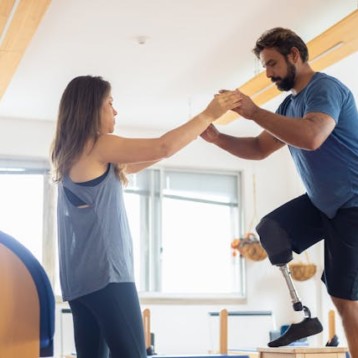A traumatic brain injury can affect anyone in their lifespan and leave long-term effects on the body. Accident victims with traumatic brain injury (TBI) are vulnerable to developing chronic conditions such as cancer, diabetes, pulmonary conditions, anxiety, heart disease, and hypertension compared to others. Additionally, TBI patients find it difficult to do normal activities and return to routine work. Recovery for TBI patients is a slow process and requires planning and changes to be incorporated into the daily lifestyle. Family members should prioritize being cooperative with their loved ones after they have suffered a TBI.
No matter what, TBI can lead to long-term medical treatment that can lead to heavy medical expenses and long-term care bills. Hence, the first step should be recovering the compensation amount for the future costs of body recovery. If you are suffering a TBI, we advise you to visit this brain damage law firm and consult the experts to receive a higher compensation amount.
Once you have the money arranged, here are a few ways to speed up recovery after a Traumatic Brain Injury.
Changes in the lifestyle
Food
It is rightly said- What you eat is what you become. A good diet varies from person to person depending on many factors, including age, gender, body constitution, weather conditions, etc. However, many studies point out that Mediterranean foods benefit TBI patients. Such food includes refined grains, such as white bread and pizza dough, seafood, fruits and vegetables, olive oil, red wine in moderation, etc. The Mediterranean diet boosts the cognitive abilities of an injured person. It is important to stay hydrated and drink plenty of water to avoid early exertion and constipation.
Foods to avoid
- It is significant to remove caffeinated drinks and sugary foods from the diet.
- Make sure to lower your salt intake. Salt is known to increase blood pressure and the chances of a sudden stroke.
- Do not consume processed foods as they are too low in nutritional content.
A healthy diet chart can be planned for individuals with TBI by consulting-
- Your general physician or doctor
- A licensed dietitian
- A therapist
Exercise
People with TBI have shown decreased physical activity levels because of reduced stamina. Several physiological, physical and societal obstacles prevent individuals post TBI from returning to normal physical activity. These barriers include-
- Feeling demotivated
- Lack of energy
- Memory Loss
- Decreased muscle strength
- Lack of stamina and willpower
- Poor awareness
- Lack of knowledge and training after TBI
- Lack of self-worth
- Decreased mobility
- Mood changes
Type of exercises to start
No exercise is for all. A TBI special exercise plan should be made specifically for a patient by examining that patient’s needs and abilities. The exercise plan should also consider how TBI has affected the person’s stamina, strength, muscular endurance and mental abilities. Such physical activity plans should be prepared with the help of a trained physical trainer and a physiotherapist.
Cardiovascular

Cardiovascular exercises are beneficial for the heart and keep the heart muscle strong. Patients with TBI should start with brisk walking, aerobics or mild yoga. Gradually after increasing their capacity, they can increase the duration to 40 minutes of moderate-intensity cardiovascular exercises, which can include anything from- Cycling, jogging, and swimming to dancing and aerobics.
Strength
The bodily strength is reduced from pre-injury to post-injury in TBI patients. It is important to include strength training exercises to increase stamina. Strength training strengthens the muscles, helps the patients regain their strength, stimulates muscle repair and improves body balance and posture. TBI patients should start with fewer repetitions of squats and lunges, depending on their abilities. Use resistance bands if required. Always perform these exercises under a trainer’s supervision.
Other tips that can help TBI patients
A TBI patient may struggle with constant headaches, confusion, sleep apnea and other chronic illnesses hampering their daily productivity. Additionally, the side effects of medication can also disrupt the normal lifestyle. It is advised to incorporate these routine activities-
- Sleeping in a calm environment can help
- Avoid exercising post-evening.
- Avoid recreational activities like amusement parks or water rides.
- Avoid physically strenuous activities like weightlifting.
- Do not use your phone 1 hour before sleep.
- Avoid taking flights if possible, as it can lead to concussions.
There is no right way to incorporate these lifestyle changes into the daily lifestyle of the TBI Patients. Take the time to care for yourself.










